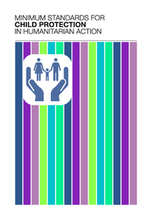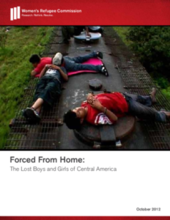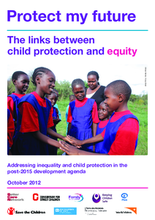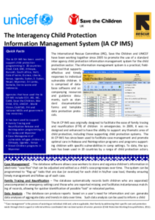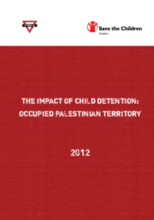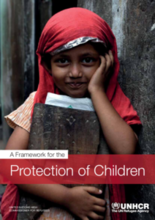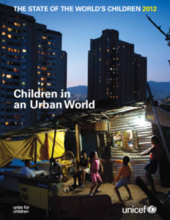Displaying 411 - 420 of 530
The Minimum Standards for Child Protection in Humanitarian Action were formulated in 2011-2012 by the Child Protection Working Group (CPWG), an inter-agency working group composed of child protection practitioners, academics, and policy makers working to support child protection work in humanitarian settings.
This research paper provides a brief overview of the Vietnam Babylift and of a more recent child abduction attempt in Chad. Then, turning to the history of child abduction and adoption history in Latin America, the paper presents the conflicts of El Salvador and Argentina and discusses ‘living disappeared’ children – those who disappear into adoption networks during war. The research explores the post-conflict social realities in both nations. The role of the social worker and specific practices are identified and discussed in context of generalist social work practice.
The purpose of this review was to identify evidence-based early response strategies and interventions for improving the outcomes of children outside of family care, including children of and on the street, institutionalized children, trafficked children, and children affected by conflict and disaster, and who are exploited for their labor. A conclusion was drawn that there is a strong need for strengthening the evidence base regarding the effectiveness or early assessments and responses to children living outside family care and for using evidence to guide operational policy and practice.
This report from the Women’s Refugee Commission describes the recent increase in migration of unaccompanied children from Central America to the United States and provides an overview of the situation of these children, including the factors that motivate their migration - primarily the violence they experience in their home countries.
The lack of care and protection facing children is a global crisis with billions of children experiencing abuse, neglect or exploitation, and many millions growing up outside of families, on the streets or in harmful institutional care. This lack of adequate care and protection is commonly the result of inequalities. Children without adequate care and protection are stigmatized and have inequitable access to basic services which, severely diminishes life chances and creates a spiral of disadvantage. In order to break this spiral, the authors of this report recommend a three-pronged strategy.
Research was conducted in five Rift Valley towns in Kenya in 2011 to understand the link between emergencies and the perceived increase of children joining the streets. Findings show that emergencies such as Post Election Violence and drought have caused children to join the streets. By far the biggest reason for children joining the streets was food insecurity. The authors advocate for an urgent, large-scale response to place children currently connected to the streets in durable situations in tandem with a multi-sectorial development approach to tackle and address the root of the crisis.
Promotes and provides inter-agency information management tools for a coordinated approach to child protection particularly in regards to separated children, children associated with armed groups and forces and other especially vulnerable children.
This report aims at giving an insight into the treatment of children in armed conflict, with a primary focus on children in detention.
The Framework for the Protection of Children broadens UNHCR’s understanding of and engagement in protection of children. It articulates six goals that encapsulate UNHCR’s commitment to protect and realize the rights of children of concern to the Office, and offers practical guidance on how to achieve them.
This report provides data on children living in urban settings, including statistics, conditions, and personal testimonies. The report also includes UNICEF’s recommendations for policy regarding children in urban settings, working with this population, and for future action. Sections that are relevant to children’s care include: children living and working on the streets, migrant children, urban emergencies, and many more.

